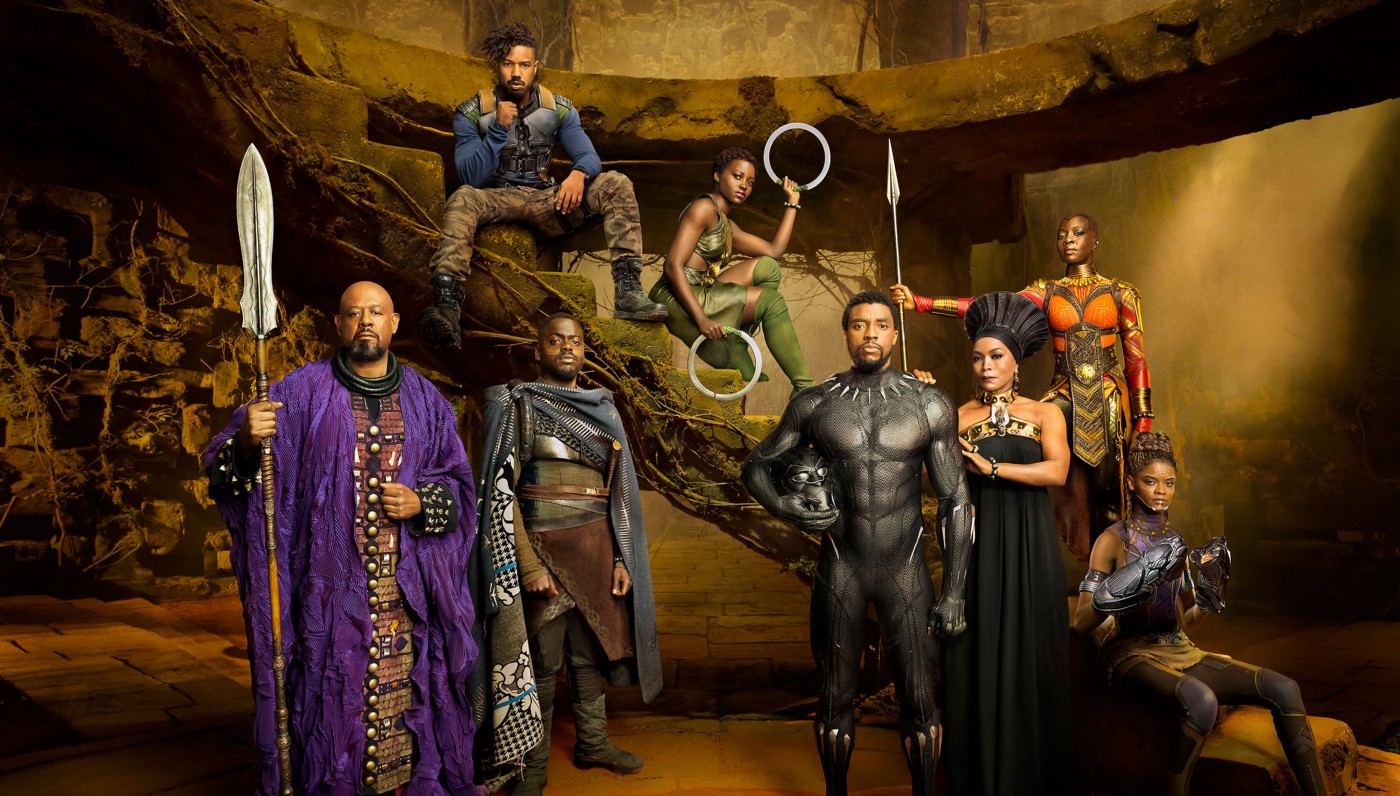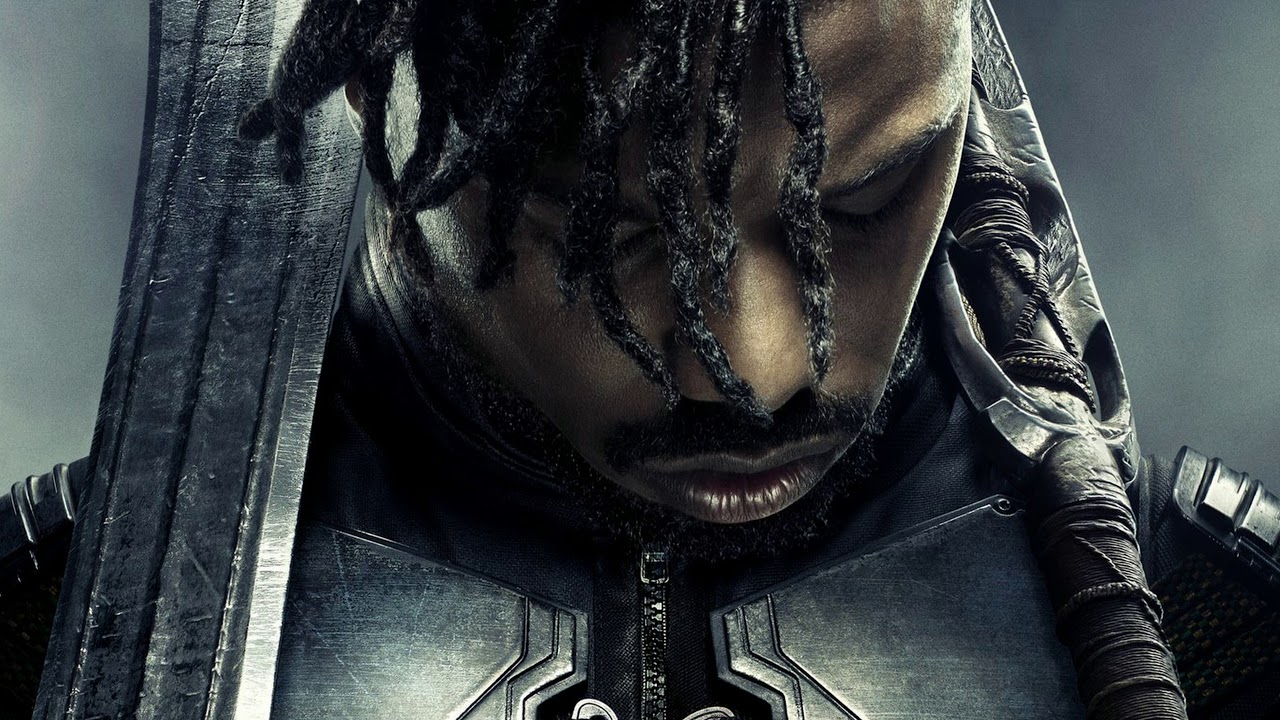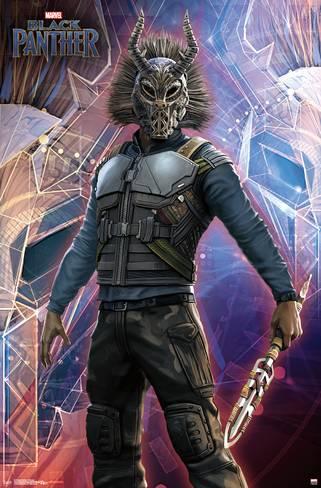
It’s been a few weeks since I’ve seen the Black Panther movie (twice) and I’ve finally taken the time to write about it. First off, I really enjoyed the movie, and though there were points of contention, I was over all very satisfied with what I saw. It was at least as good as I expected, and though I didn’t feel there was a ton of subtext, the film’s subject matter was very interesting. Even despite the Disney dilution, the film maintains it’s depth and hits home in it’s content. Of all the special things I could point out, and that have been pointed out by fans, one part in particular calls me to ramble. And that’s what brings me here today….
As many have already pointed out, Erik Killmonger is amongst the greatest villains in Marvel’s cinematic history and for more than his complexity. Killmonger, for me, and many others I’m sure, was incredibly relatable. Almost too relatable. A tragic villain, though one who in an ironic way, ends up being something of a tragic hero. His goal at least on face value seems solid. There’s no necessary reason for him to be “evil” at all, yet it seems they go out of their way to make him appear so. On second watch I actually felt Killmonger’s “tyranny” as king of Wakanda is almost justifiable in the context, being a non-African born outsider amongst a xenophobic and isolationist nation like Wakanda. Even if T’Challa hadn’t returned, it’s likely someone with proximity would be conspiring against him.
His often violent, and ruthless path was partially out of necessity, and he would have never made it so far perhaps without it. Especially as an inner city black kid, orphaned by the death of his father; his father being the link to his glorified royal origins. I get why the filmmakers may have went in the direction they did. Killmonger’s position for a mainstream liberal audience might be off-putting, much like the real life Black Panther Party. The seemingly unnecessary evil of Killmonger helps the audience tell who they’re meant to be cheering for. I just feel like there was so much more there to explore. Personally, I’d like to see an alternate version where T’Challa doesn’t survive their battle and we get to see how Killmonger’s plan pans out. I imagine his only true resistance would come from internal struggles with insurrectionaries, those of the former royalty.

Killmonger’s perspective for afro-diasporic peoples is familiar. He’s been abandoned by his own people (Wakandans) in the land of “the colonizer“, to be oppressed. He returns to be viewed as an outsider, one who is like the colonizer. It’s fairly clear for us that Wakanda represents Africans in their native land, “unblemished” and “pure”, the romanticized “myth of origin” many of us in the states still cling to. Erik Killmonger is like us, an orphan of a tragic history. He is a symbol of Black suffering, and of the suffering of heavily melanated people worldwide struggling under racial oppression. For Wakandans, the use of the colonizer’s methods make him like the colonizer, but I disagree. Sure, guns are primitive. Violence in general is primitive, but in some circumstances it’s necessary. Now I could have missed something here, but it appears to me his goal was simply to arm those in need of defense from their oppressors. This doesn’t seem so malicious or evil. T’Chala’s outreach center seems hardly any more helpful, despite it’s seemingly “moderate” non-violence. Let’s not forget that the formation of European and Anglo-American nations happened more often through violence against rulers who were viewed as oppressive. These moments in history, from the French Revolution to the American Revolutionary War are typically viewed as heroic and celebrated. I don’t see any non-racist explanation for why revolution amongst oppressed Africans and Afro-diaspora shouldn’t be viewed the same.
 In addition to arming the oppressed, it would seem useful to help them develop sustainable economies, governments/systems of social organization to establish long lasting change, though this isn’t discussed explicitly in the film. Perhaps this is the ultimate goal of T’Chala’s outreach. If there really was such a powerful nation as Wakanda, the fact that they remain isolationist despite their ability to help those in need becomes problematic. How could they watch Afro-descendents around the world suffer as Wakanda enjoys the comfort and luxury of afro-futurist utopia. What good is it to call them names (colonizer) if you stand by and watch the world burn at their hands. It seems as if N’Jadaka had not returned, the Panther might never have turned his attention to the world. This is why in my opinion, it is ironically Killmonger who is the true hero of the film.
In addition to arming the oppressed, it would seem useful to help them develop sustainable economies, governments/systems of social organization to establish long lasting change, though this isn’t discussed explicitly in the film. Perhaps this is the ultimate goal of T’Chala’s outreach. If there really was such a powerful nation as Wakanda, the fact that they remain isolationist despite their ability to help those in need becomes problematic. How could they watch Afro-descendents around the world suffer as Wakanda enjoys the comfort and luxury of afro-futurist utopia. What good is it to call them names (colonizer) if you stand by and watch the world burn at their hands. It seems as if N’Jadaka had not returned, the Panther might never have turned his attention to the world. This is why in my opinion, it is ironically Killmonger who is the true hero of the film.
Long live the king!
Overall, the film was super inspiring for me as a writer, excellent story telling. I even have a few strong nods coming in some of the later epics of the Multiverse War Chronicles. There’s incredible potential in this work, even if just to contribute to the greater pan-African discourse. I hope to see more like it. Who knows, maybe I’ll even take myself up on writing the alternate version that’s been brewing since my second viewing. Good job Coogler, and all the wonderful cast and crew, writers, musical artists ect. who contributed to this excellent film.




Pingback: Backlinks